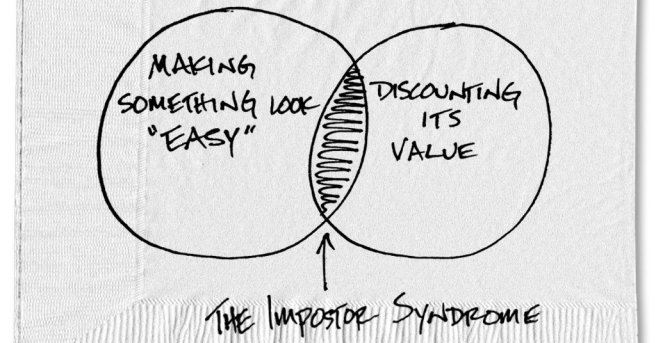
This is the 13th book published by primatologist and ethologist Frans de Waal, although it is the first of his that I have read. In it, de Waal links his decades of work with primate social behavior to his own Dutch-American societal understanding and personal journey in a way designed to suggest that we humans (especially Americans) are not necessarily bound by self-maximizing and cut-throat behavioral tendencies. He argues for the existence of empathy in apes, monkeys, bonobos as well as higher order mammals such as dogs and cats and even delving into the collective behavior of birds.
In beginning this book, my original fear was that the author would be an overly idealistic Dutch socialist type. Don’t get me wrong, I have a great respect and admiration for the European culture. Having lived in Europe for a few years during military service, I experienced first hand the benefits of a more socialized society. Although admittedly I was still a U.S. Government employee so I paid none of the taxes that paid for this culture. This almost certainly gives me an idealized view of the highly socialized society.
Regardless, I enjoyed the common services, advanced public transportation and overall culture of social connectivity that can be found throughout much of Europe. One of my all-time favorite countries to visit during my European tour was Frans de Waal’s native Netherlands. The sense of community in Amsterdam seems so ingrained that, although the number of bicycles easily outnumbers the number of cars, I hardly every saw a bike with a lock on it outside of a residential building. My fellow American travelling companions and I never did figure out if the locals either weren’t worried about people stealing their bikes or perhaps if there was some sort of tacit take a bike, leave a bike type system that the city was running off of… The bikes were never locked up, but they weren’t very fancy either. I would believe it if the residents simply weren’t terribly concerned with whether or not the bike they left with was the same as the one they arrived on.
So it’s not a distaste for the European socialist culture that made me initially wary of a book from a Dutch academic about empathy, but rather it was the understanding I have that America is not Europe and that it is unrealistic to expect any sort of cultural flip in the U.S. to happen on any short timeline. The author was quick to settle my fears, however, and soon paused to describe the in-between state of his worldview. Having been shaped first by his European upbringing and education and then reformed by his decades of work in the United States, de Waal states his own cultural allegiances as lying “somewhere in the Atlantic” between Europe and the United States. This effectively dispelled my suspicions of de Waal as an idealist and firmly established him a realist. I like realists.
Having established his own personal history and culture, de Waal moves on to the meat of the book which is the work he has done observing primates specifically in the context of their tendencies towards empathy, society, sympathy, equity/inequity and unity. In addressing animal behavior in this way, de Waal picks up two adversaries from polar opposite ends of human spectrum. The first being the hard-line scientists, the second being evolutionary deniers, both of which are simply not comfortable assigning historically human personality traits to animals. To the scientists, this aversion seems to mostly be a word game. To them, a dog cannot be happy it can only be playful and likewise it cannot be angry it can only be aggressive. Emotional adjectives are solely owned by humans, and it is simply inappropriate to discuss animal behavior in these terms.
Interestingly to the same ends but by very different means, the evolutionary denial perspective asserts that humans are the sole owners of complex emotions by virtue of our special place in the universe. Implicitly this place was given to us by a creator, and the animal kingdom was then given to us to use as we see fit. Being the superior and beloved children of creation that we are, concepts like love and empathy are a relationship between humans and their gods. The relationship between humans and animals is something more utilitarian and so there is no need for creation to waste feelings on the animal kingdom. To the scientist, we are sufficiently advanced enough to have developed emotional processes that are uniquely our own. To the spiritualist, these emotions were given to us because we sit in the light of consciousness, a place other species simply do not occupy.
I can’t say the author effectively dispatched any of these detractors to his perspective. Nothing was proven in this book. Nothing is ever proven in behavioral science, especially in non-human animal behavioral science. The best that can be done is to have perspectives and hypotheses supported by observation and repeatable experiments. At the end of the day, the difference between a happy dog and playful dog is perspective. Arguments on which adjective is appropriate quickly delve into the existence, nature and placement of the soul within man and animal. Perhaps someday there will be a settlement to this argument, but I highly doubt one will come in my day.
What the author does is make a damn good case for the existence of empathy in the non-human animal kingdom. He brings his experience, insight and observation to the topic in a way that resonates with the reader, at least it resonated with me. The concept seems reasonable, supported and attractive and I see no harm in deciding it to be true.
Approaching the conclusion of the book, de Waal circles from the lives of chimps and Capuchin monkeys back around to us human apes to tie it all together in support of his thesis point. That point being that our empathy is not unique to our species, it is very much alive and well in nature. Again establishing himself as a realistic person influenced by his time in America, he then gives great regard for the advantages afforded to man and animal through competition, and pauses to note that he does not advocate for a removal of all things apathetic from our society. Being a man with a perspective sitting somewhere in the Atlantic, he goes on to discuss his concept of fairness as not simply a situation where everyone gets an equal share of the pie, but also one where the baker gets a larger slice. Because he earned it. That too, the author suggests, is fair.
If I was missing one thing from this book, it was a call to action. The title suggested that I would be exposed to at least a theory on how the overly socialist societies to the east and our own American one could meet Frans de Waal in the middle of the Atlantic, hopefully finding a place where we can reap the benefits of culturally systemic empathy while still realizing a decent amount of capital reward afforded by perpetual competition and struggle. I did not take anything like that away from the book. Then again, if I was really looking for a definitive solution to the ages old back and forth between liberty and society in the spirit of fraternity, I probably shouldn’t have read a book written by a realist.





